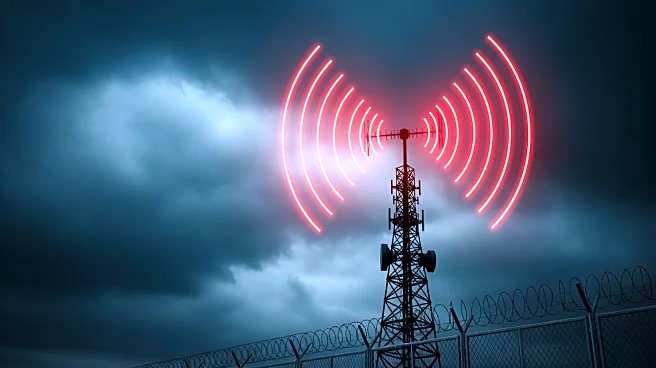What's Happening?
Russia's mysterious 'Doomsday Radio', known as UVB-76, has issued a cryptic signal that has sparked fears of a potential military threat to Latvia. The station, active since the Cold War, typically emits
a constant buzzing sound but occasionally sends out coded messages. On Monday, it transmitted a series of messages, including one that mentioned 'Latvia', leading to speculation about Russia's next military target following its actions in Ukraine. Latvia, a NATO member, would trigger a collective defense response from the alliance if attacked, potentially escalating into a broader conflict. The radio's signals are believed to be linked to Russia's strategic military command, with increased activity noted during crises.
Why It's Important?
The mention of Latvia in the 'Doomsday Radio' transmission is significant due to the geopolitical implications. As a NATO member, any aggression towards Latvia would invoke Article 5, obligating all member countries, including the United States, to respond collectively. This could lead to a major international conflict, possibly involving nuclear powers. The situation underscores the ongoing tensions between Russia and NATO, exacerbated by Russia's actions in Ukraine. The potential for an expanded conflict poses risks to global stability and security, affecting international relations and defense strategies.
What's Next?
If Russia were to act on the implied threat to Latvia, NATO would likely convene emergency meetings to address the situation and prepare a coordinated response. The alliance's readiness to defend its members could lead to increased military presence in Eastern Europe. Additionally, diplomatic efforts may intensify to de-escalate tensions and prevent further conflict. Monitoring of Russia's communications and military activities will be crucial in anticipating any aggressive moves.
Beyond the Headlines
The use of cryptic radio signals by Russia highlights the complexities of modern warfare, where psychological operations and information warfare play significant roles. The historical context of the 'Doomsday Radio' reflects the enduring legacy of Cold War tactics in contemporary geopolitical strategies. The situation also raises questions about the effectiveness of international treaties and alliances in deterring aggression and maintaining peace.









